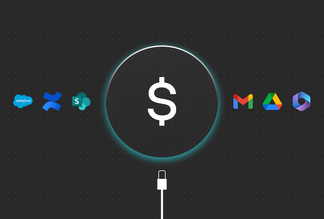
Are you using a hammer to wash the dishes?
A hammer is, undeniably, a versatile and excellent tool. For something so simple to have so many uses is without equal. You can insert nails into things, pull nails out of things. Make meat softer. Encourage hot metal to be a different shape. Encourage soft metal to be a different shape. Bang wooden ones on wooden plates so that you can be heard shouting “Order!” and check if someone's reactions work by banging them on the knee with one.
Other uses of a hammer include: applying makeup, washing dishes, adding paint to canvas, inserting screws, cutting your dinner, banging a drum and soaping hard to reach places.
So, you can see that a hammer is a very versatile tool. The thing is though, while you could do all those things in the second list, you probably shouldn't. There are better, more appropriate tools for each of those jobs, from sponges to knives and paintbrushes
You're probably laughing now, “How silly, I'd never use a hammer for those things!” you think and, of course, you wouldn't, because it's silly to use the wrong tool for a job. However, I'm also confident that you've used a spreadsheet to do something it's not supposed to be used for at some point in your career, haven't you? Don't blush; it's perfectly fine. We've all done it. I certainly have, although in most instances it's because the organization I work for has mandated it.
Why are we obsessed with spreadsheets?
A while ago, I did some work for a public organization with 50,000 employees spread worldwide. For the entire organization, their forecasting model was based on a single spreadsheet maintained by one person in an office in Perth, the head office being in the USA. Every project manager in that organization then copied that master spreadsheet to their own computer to manage their project, uploading into a finance system once a month. The person in Perth regularly updated it of course, but when you looked under the hood, it was like arcane magic.
That organization was using a hammer to clean their bathroom sink. Does it work? Sure! Is it appropriate? Absolutely not. But it worked to fulfil a need that could probably be found elsewhere, so we muddled through. As do many other organizations, but without proper funding for the correct kind of platforms, terrible mistakes can happen.
More than that, though, it's not just financial and clinical data that people are storing in spreadsheets. Go and take a look out of a window. See something that was built within the last 10 to 15 years? It was probably made using a spreadsheet to manage at least one part of the construction. “That's not so bad!” you cry. Well, I can see a nuclear power station and an airport if I squint from my window. I'd rather they didn't plan projects and create Gantt charts in a spreadsheet when constructing such vital buildings! (I can’t see a nuclear power station and I can only see planes from my window, but you get the point!)
But my spreadsheets are great!
Look, don't get me wrong. Spreadsheets are excellent, smart things most of the time. With over 650,000 organizations in the US alone using Microsoft Office, I can see how comparing a spreadsheet to a hammer is a little unfair. A better comparison would be to compare a spreadsheet to a utility tool, which had knives, saws, screwdrivers, bottle openers and those things for getting stones out of horses feet.
But if your builder turned up to start on your remodel and their entire toolbox contained just one tool—a utility tool, you'd question whether they were the right person for the job, wouldn't you?
A better alternative: new ways of working
The next time you reach for a spreadsheet to start a new thing, pause for a moment and consider whether there might be a better, more suitable tool for the job at hand? Something that is designed to do the job you're about to do, to do it better, faster, more accurately and with fewer requirements for you to create arcane (or just plain) magic in the formula bar.
For example, most organizations go through a period of goal setting, either annually, or quarterly around this time of year. Many of those organizations will be using spreadsheets to track the goals and associated metrics and most of those goals and metrics will be forgotten about until the next review period. Sound familiar?
Better tools will also be more likely to integrate with work hubs like Qatalog. Offering you a view of all your work in one place, regardless of which online service you’re using. Let's face it; spreadsheets don't integrate with anything and, even when they do, you have to ask yourself, “I'm just using this spreadsheet as a database, aren't I?” Other more appropriate tools will also be easier to share, less likely to be broken by someone unfamiliar with it and will probably come with automated backups and an SLA!
So, while you could use a hammer to cut your next slice of cake, you have to ask yourself whether you should.



